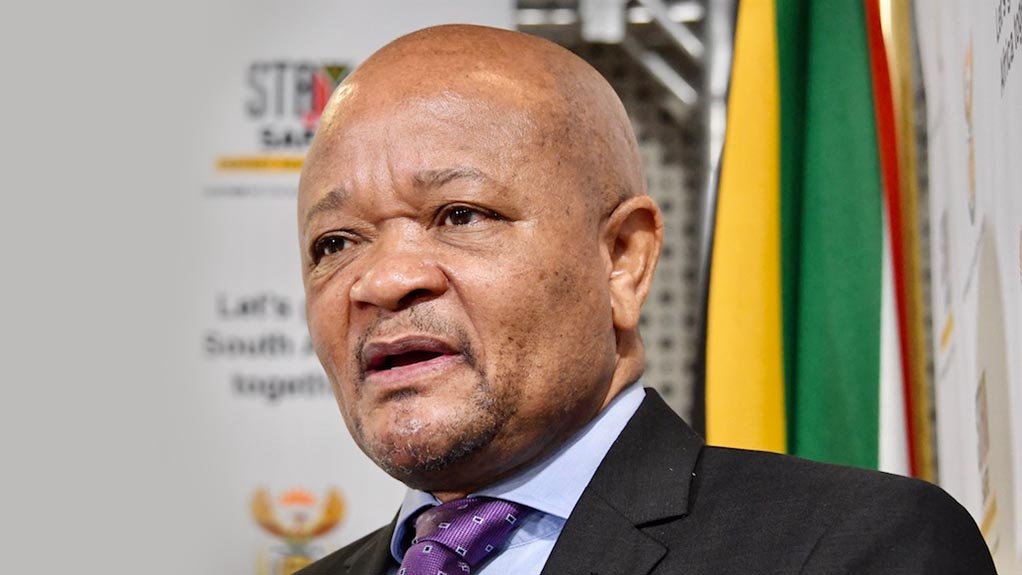/ MEDIA STATEMENT / The content on this page is not written by Polity.org.za, but is supplied by third parties. This content does not constitute news reporting by Polity.org.za.
The innovative off-grid, solar-powered groundwater harvesting and treatment projects, able to supply around 90 million litres of water per annum under full capacity, were launched in Gqeberha on Friday, 16 September to assist communities left distressed by the ongoing drought.
The systems, dubbed Coke Ville, are the initiative of Coca-Cola Beverages South Africa (CCBSA), and pump, treat, store and distribute clean water to communities in need.
CCBSA, Africa’s biggest bottler, rolled out the Coke Ville sites in partnership with the Ministry of Water and Sanitation, as part of broad stakeholder collaboration to stave off Day Zero in the Nelson Mandela Bay Metro. Day Zero is when the Metro’s taps run dry.
The Coke Ville project in the Nelson Mandela Bay have a combined total of nine turnkey borehole systems, with a minimum annual potential of replenishing 90 million litres per annum at no cost to the residents of the communities in which they are located.
CCBSA is deploying the systems to the worst affected areas within Nelson Mandela Bay Municipality, including Walmer, Lorraine and Kariega area.
Minister of Water and Sanitation Senzo Mchunu said: “The drought in Nelson Mandela Bay, as we saw in Cape Town in 2017/2018, has again brought home how fragile our world is and how susceptible we are to environmental occurrences such as drought, particularly in a water-stressed nation such as ours.
“We also realise that in order to overcome such challenges we need behavioural change on individual, as well as a global level,” he said.
“Furthermore, it is critical that all stakeholders work together, from the different levels of government to the corporate sector, relief and aid organisations and communities in order to come up with solutions,” Mchunu added. “The launch of the Coke Ville systems shows what can be achieved, we are deeply grateful to CCBSA for their continued commitment at a time such as this.”
CCBSA Public Affairs, Communications and Sustainability Director, Nozicelo Ngcobo, said the deployment of the Coke Villes was one of the practical expressions of the company’s commitment
to communities and sustainability.
“As part of building resilient communities, we have deployed a number of Coke Ville projects to pump, treat, store and distribute clean water in peri-urban and rural communities,” she added.
“Since inception in 2020, the project has distributed over 300 million litres of water in Limpopo, Gauteng, Eastern Cape and KwaZulu-Natal.”
This year, the company is rolling out 12 new systems, including the nine in the Gqeberha area. Each Coke Ville comes complete with tank stand, storage tanks, lockable manhole for pump, alarm system for security, palisade fencing around tank stand and solar panels with lockable gate. The taps are located outside the system to allow communities to fetch water at their convenience.
“As a company that uses water as one of its key ingredients, we are very conscious of the importance of preserving water as we operate in a water scarce country also prone to droughts. Our Water Stewardship Strategy and efforts are reflected in how we approach the preservation of this valuable resource,” Ngcobo said.
Globally, The Coca-Cola Company’s Water Stewardship Strategy 2030, is a three-pronged strategy to water which is focused on regenerative operations, healthy watersheds, and resilient communities
According to Ngcobo, CCBSA is working with the Nelson Mandela Bay Municipality and other key stakeholders, including Gift of the Givers, to assist vulnerable and distressed communities. Besides the Coke Ville systems, CCBSA has in recent months also arranged for the delivery of water to key points in the Metro, donated 20 x 5,000 Litre water tanks which were placed at identified water collection points around the city as part of the Municipality’s response plan. In addition, 500 water wheelers were distributed throughout the Coke Ville project locations, particularly to assist the elderly or households with persons with disabilities, to aid with water collection and storage.
Ngcobo was confident that Day Zero could be averted in Nelson Mandela Bay, saying it would take a collective effort and radical changes in user behaviour, but that this was possible through partnerships and collaboration.
“We live in a water-stressed country, and we need to actively reduce unnecessary wastage and alter consumption patterns and education to build awareness is an important part of this exercise. Consistent access to clean running water remains a challenge for many rural and peri-urban communities across South Africa, and with global warming, the situation is getting worse. Having access to clean running water is the difference between compromised human health, and socio-economic development,” she added.
Ngcobo added that the Water Stewardship Strategy supports the United Nations’ Sustainability Development Goal 6 and the National Development Plan, which both advocate for universal and fair access to clean drinking water for all, by 2030.
“At CCBSA, we aim to be part of the solution to achieve positive change in the world and to build a more sustainable future for our planet,” Ngcobo concluded. “This is even more so during times of crisis such as what we have been seeing in Nelson Mandela Bay. We would call on all sectors of society to join hands as we work to overcome this challenge.”
issued by Alexandra Kayle from Corporate Image
EMAIL THIS ARTICLE SAVE THIS ARTICLE ARTICLE ENQUIRY
To subscribe email subscriptions@creamermedia.co.za or click here
To advertise email advertising@creamermedia.co.za or click here











